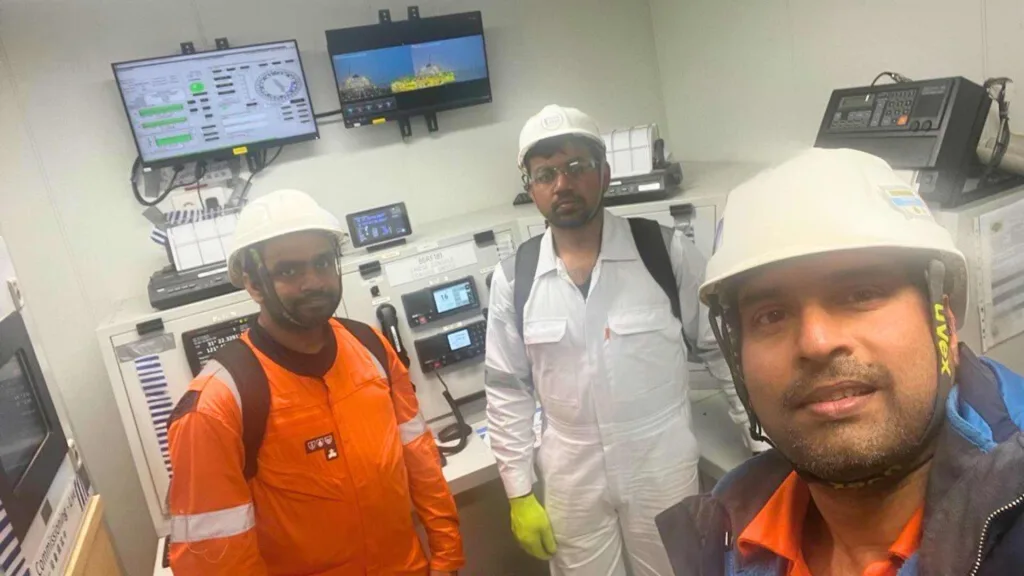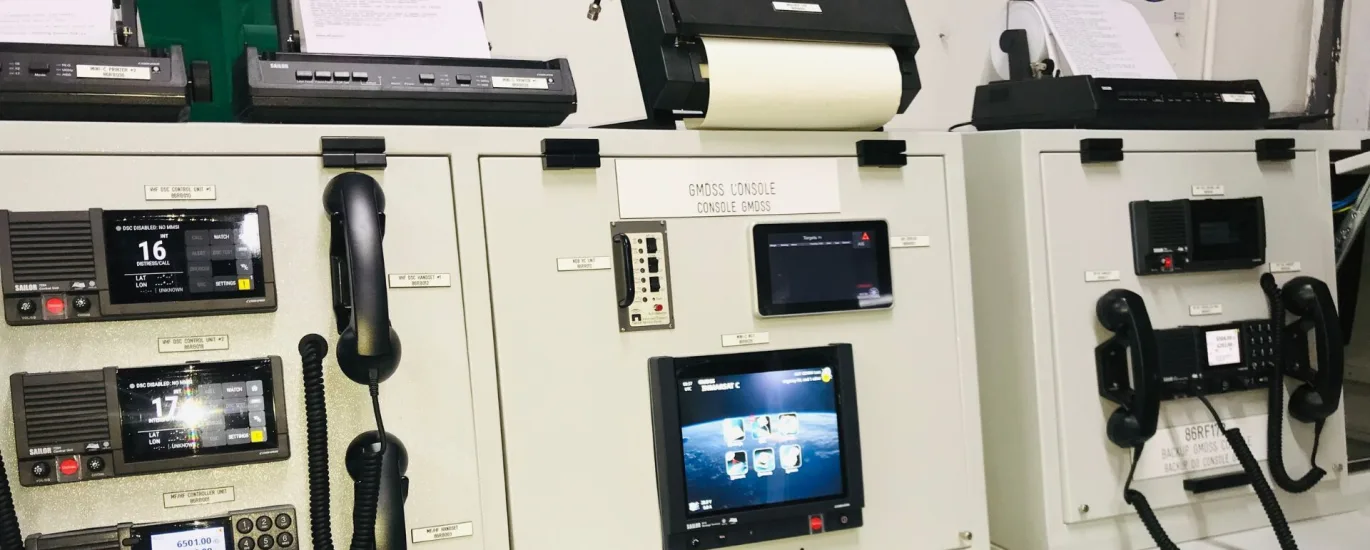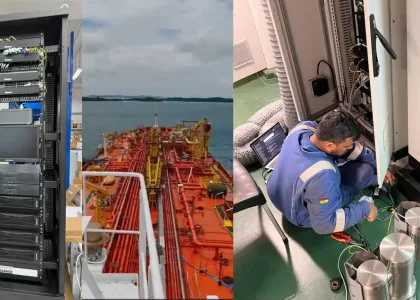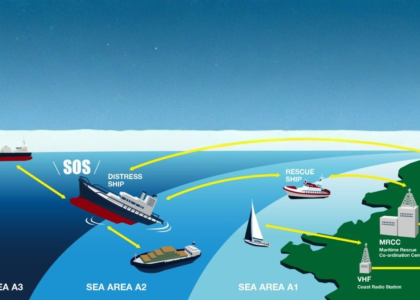Radio surveys for GMDSS on FPSOs are indispensable for ensuring compliance with international maritime communication standards and maintaining operational readiness in offshore environments.
Among the regulatory requirements for maritime communication on FPSOs is the Global Maritime Distress and Safety System (GMDSS), which mandates periodic radio surveys to verify the integrity and functionality of onboard communication equipment.
The GMDSS is an internationally recognized framework designed to enhance maritime safety and facilitate rapid distress alerting and response. FPSOs, as mobile offshore units, must adhere to GMDSS regulations to ensure effective communication in emergency situations. Compliance requires the installation and maintenance of GMDSS-compliant communication equipment, including VHF radios, MF/HF radios, satellite communication systems, and emergency position-indicating radio beacons (EPIRBs).
Purpose of Radio Surveys
Radio surveys for GMDSS on FPSOs serve the dual purpose of regulatory compliance and operational readiness. Conducted by certified surveyors, these surveys verify that the vessel’s communication systems meet the standards set forth by the International Maritime Organization (IMO) and other regulatory bodies. The surveys assess the functionality, performance, and integration of GMDSS equipment, ensuring that it remains operational and reliable under normal and emergency conditions.
Scope of Radio Surveys
A comprehensive radio survey for GMDSS on FPSOs covers all aspects of onboard communication equipment and systems. This includes inspecting antennas, transceivers, power supplies, emergency batteries, and associated cabling for compliance with technical specifications and operational requirements. Surveyors also verify the availability of required documentation, such as radio manuals, maintenance records, and certificates of compliance.

Conducting A Radio Survey
Preparation and Documentation Review:
Gather all relevant documents, including the vessel’s radio license, previous survey reports, and records of maintenance and repairs. Ensure the vessel’s radio equipment is correctly licensed and certified.
VHF Radio (Very High Frequency): Check the operation, signal strength, and clarity of transmission and reception.
MF/HF Radio (Medium Frequency/High Frequency): Test for long-range communication capabilities, including DSC (Digital Selective Calling) functionality.
Satellite Communication Systems: Ensure that systems like Inmarsat or Iridium are functioning correctly.
EPIRB (Emergency Position Indicating Radio Beacon): Verify proper registration, battery status, and test functionality.
SART (Search and Rescue Transponder): Test the device to ensure it is operational and capable of sending distress signals.
Navtex Receiver: Confirm that the receiver is operational and capable of receiving navigational and meteorological warnings.
AIS (Automatic Identification System): Check for proper operation, ensuring the transmission of the vessel’s position and other relevant data.
Functional Testing:
Conduct operational tests on all communication equipment, ensuring that they can send and receive messages effectively.
Perform a DSC test call to a coast station to verify DSC equipment functionality. Verify the integration and correct operation of all equipment within the Global Maritime Distress and Safety System (GMDSS).
Antenna Systems Check:
Inspect antennas for any physical damage or corrosion. Ensure proper installation and grounding of antennas.
Battery and Power Supply:
Check the condition of batteries and power supply units that support radio equipment. Verify the charging system and backup power supply to ensure continuous operation during emergencies.
Compliance Verification:
Ensure that all radio equipment meets the standards set by the International Maritime Organization (IMO) and complies with the Safety of Life at Sea (SOLAS) regulations. Confirm that the vessel’s communication systems align with the specific requirements for its trading area and type of operation.
Survey Report:
Prepare a detailed report documenting the findings of the survey, including any deficiencies or non-compliance issues. Provide recommendations for corrective actions and repairs if needed. Issue certificates of compliance if the vessel meets all regulatory requirements.
Maintaining Compliance and Certification
Successful completion of radio surveys for GMDSS on FPSOs is essential for maintaining regulatory compliance and certification. Valid GMDSS compliance certificates demonstrate to maritime authorities, flag administrations, and industry stakeholders that the vessel meets the requisite standards for maritime communication and distress alerting. Failure to comply with GMDSS requirements may result in regulatory penalties, operational disruptions, and reputational damage.
Get the Right Team
By conducting thorough assessments of onboard communication equipment and systems, Team Vivo will contribute to the safety, reliability, and efficiency of FPSO operations, safeguarding the interests of crew members, contractors, and the environment. Contact us today to discuss youre requirements!










